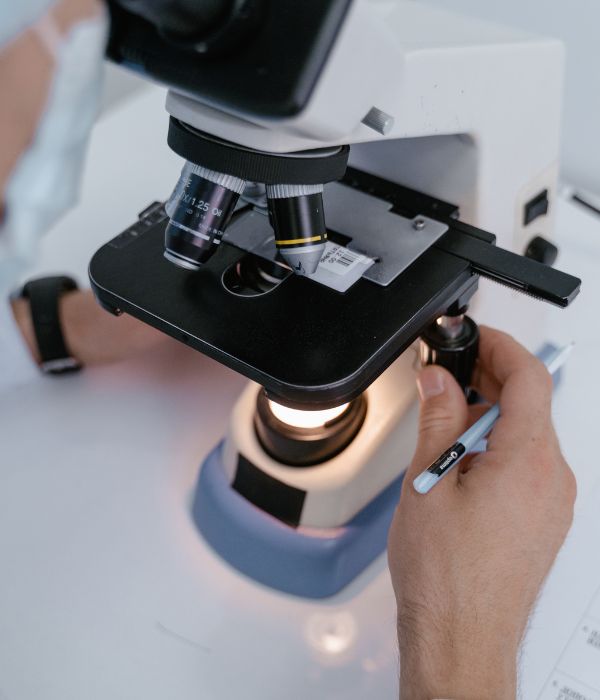Veterinary Fecal Exam in Fletcher, NC
At Fletcher Animal Hospital, we prioritize regular health assessments for your pets, including veterinary fecal exams in Fletcher, NC. This vital diagnostic procedure plays a crucial role in maintaining your pet’s health by identifying potential intestinal parasites and other gastrointestinal issues that could compromise their well-being.
Understanding the Veterinary Fecal Exam
A veterinary fecal exam is a routine procedure in which a small sample of your pet’s feces is analyzed to detect the presence of parasites, bacteria, and other abnormalities. This test can identify common intestinal parasites such as roundworms, hookworms, whipworms, and giardia, leading to serious health issues if left untreated. The exam typically involves examining the fecal sample under a microscope to identify parasites or their eggs.
The procedure is straightforward and non-invasive, usually taking only a few minutes to complete. Your veterinarian will guide you on collecting the fecal sample at home and bringing it to our facility for testing. This test is essential for pets of all ages, including puppies and kittens, who are particularly susceptible to intestinal parasites.

Why Veterinary Fecal Exams Are Important
Regular veterinary fecal exams provide numerous benefits that contribute to your pet’s health. Here are some reasons why this diagnostic test is crucial:
Early Detection of Parasites
Intestinal parasites can cause a range of health problems, from mild gastrointestinal upset to severe illness. Early detection through a fecal exam allows for prompt treatment, reducing the risk of complications.
Prevention of Transmission
Many intestinal parasites can be transmitted to humans and other pets. Identifying and treating these parasites in your pet can help prevent their spread within your household and the community.
Improved Quality of Life
Pets infected with parasites may exhibit symptoms such as vomiting, diarrhea, weight loss, and lethargy. Ensuring regular fecal exams and timely treatment can enhance your pet’s overall health and quality of life.
Monitoring Health
For pets with a past of parasitic infections, routine fecal exams are key to tracking their health and catching any re-infections early. This consistent monitoring helps keep your pet healthy and comfortable over the long term.
Tailored Preventative Care
The results of a fecal exam can guide your veterinarian in tailoring a preventative care plan for your pet. This may include specific deworming protocols and recommendations for flea and tick prevention.
Detection of Hidden Infections
Fecal exams can reveal bacterial infections or other digestive imbalances that may not show obvious symptoms. Identifying these issues early allows for targeted treatment and prevents the development of more severe conditions.
When Should You Schedule a Veterinary Fecal Exam?
Determining when to schedule a veterinary fecal exam for your pet depends on various factors. Here are some situations when a fecal exam is particularly important:
- Puppies and Kittens: Young pets are more susceptible to intestinal parasites, so performing fecal exams during their first few months of life is essential. Your veterinarian may recommend exams every few weeks until they reach a certain age.
- Annual Wellness Exams: It is advisable to include a fecal exam during your pet’s annual wellness check-up, even if they appear healthy. Regular screening helps identify hidden issues that may not present obvious symptoms.
- Signs of Infection: If your pet displays any signs of gastrointestinal distress, such as vomiting, diarrhea, or changes in appetite, a fecal exam is crucial. These symptoms may indicate the presence of intestinal parasites or other health concerns that need immediate attention.
- Recent Exposure: If your pet has been in contact with other animals, particularly in environments such as boarding facilities or dog parks, scheduling a fecal exam can help ensure they have not contracted any parasites.
- After Treatment: Following treatment for intestinal parasites, it is important to schedule a follow-up fecal exam to confirm the effectiveness of the treatment and ensure your pet is parasite-free.
Regular veterinary fecal exams are critical to maintaining your pet’s health. By detecting intestinal parasites early and providing appropriate treatment, we can help ensure a healthier and happier life for your pet. At Fletcher Animal Hospital, we prioritize the well-being of your furry family members and are here to provide the necessary care they need.
If you have questions about veterinary fecal exams in Fletcher, NC, or would like to book an appointment, please do not hesitate to contact us. Your pet’s health is our priority, and we are dedicated to providing comprehensive care tailored to their needs.
